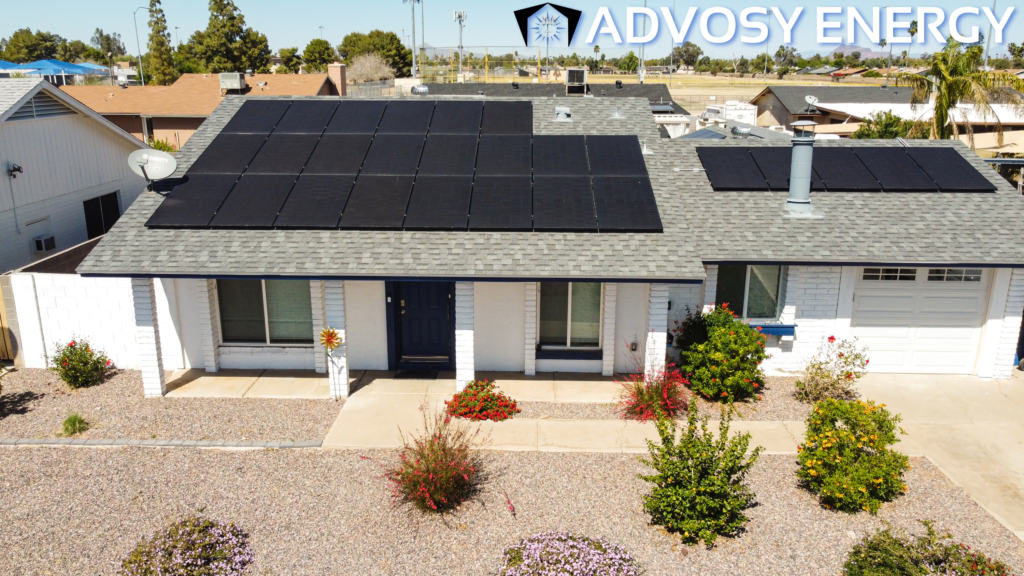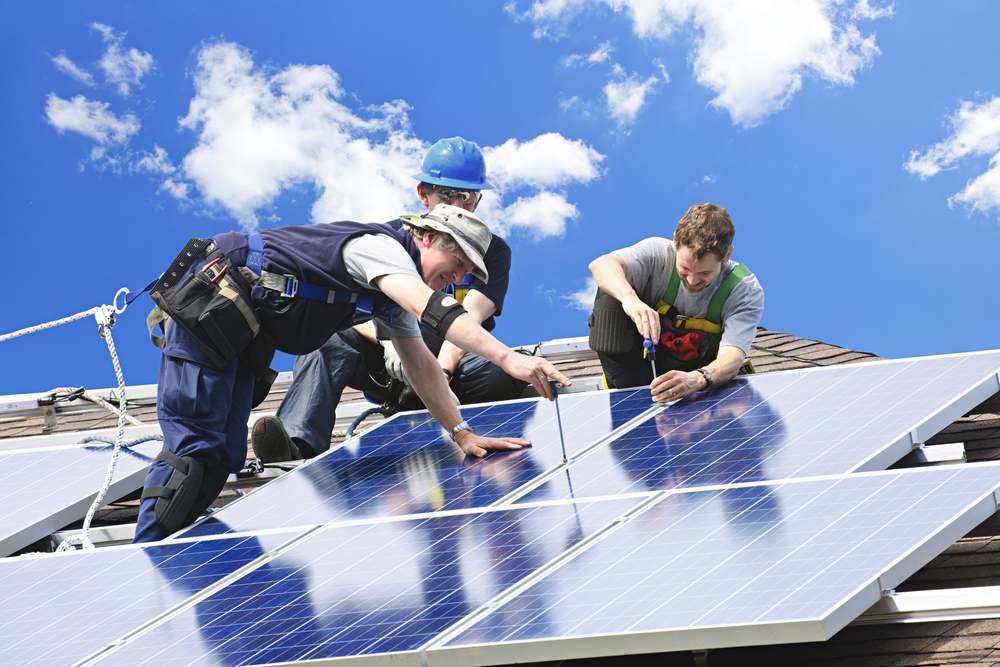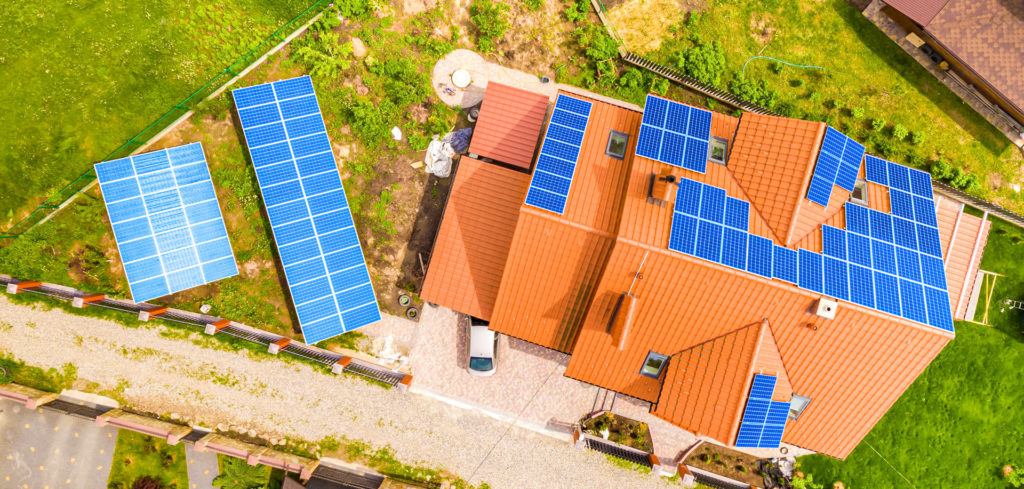Solar roofing systems are becoming increasingly popular for their cost-efficiency, sustainability and convenience. It is important to create an effective maintenance schedule in order to ensure that the system remains optimally functional and efficient over time.
This article will discuss why a routine maintenance schedule is essential for solar roofing systems, as well as provide tips on how to create an appropriate plan for your particular setup.
The advantages of having a sound maintenance strategy should not be underestimated; proper upkeep can extend the life span of the system and maximize its efficiency while minimizing downtime due to malfunctions or repairs.
By following some simple steps, you can develop a comprehensive maintenance program tailored to your needs and budget that keeps your solar roofing system running at peak performance year after year.
1. Benefits Of A Maintenance Schedule
Maintenance of a solar roofing system is an important step to ensure its long-term performance and efficiency. Regular maintenance can help reduce the need for costly repairs and protect the warranty coverage on components in the system.
Preventive maintenance helps keep the system running smoothly, extends its lifespan, and reduces downtime due to unexpected issues or failures.
The proper care and maintenance of a solar roofing system will depend upon several factors such as location, climate, environment, type of system installed, application requirements, manufacturer’s specifications, etc. A well thought out maintenance schedule should be designed to accommodate these factors with regular checks and inspections that are tailored specifically for each individual solar roofing system.
By planning ahead through preventive maintenance activities it is possible to maintain efficient operation over time while keeping your investment secure under warranty coverage.
2. Identifying Potential Issues

Regular preventive maintenance is essential to ensure that a solar roofing system remains functional and effective. It should be designed to identify potential issues before they become serious problems, such as corrosion or damage due to weatherproofing. In this way, any necessary adjustments can be made quickly, while potentially expensive repairs are avoided.
A comprehensive maintenance schedule should include routine inspections of the entire system in order to check for faults and signs of wear. This includes inspecting all wiring connections, checking battery levels and ensuring that panels are clean and free from dirt or dust which could reduce efficiency.
Weatherproofing measures should also be taken regularly to protect against water damage and ensure durability over time. Careful monitoring of the system’s performance is important in order to detect changes in output power which may indicate an underlying issue with the installation.
Through diligent attention and proactive care, systems can remain operational at peak capacity for many years to come.
3. Establishing A Maintenance Routine
Maintaining a solar roofing system requires regular monitoring of its usage and researching trends. This is to ensure that the system stays in optimal condition, continuing to provide reliable power for as long as possible. By keeping an eye on certain metrics, such as energy output or voltage levels, it’s possible to identify any issues before they become serious problems.
Additionally, understanding how different weather conditions impact the performance of your system can help you plan maintenance accordingly. It is also important to keep up with advances in technology related to photovoltaic systems so that you are aware of any new methods or products that could improve the efficiency of your existing installation. Taking advantage of new developments when appropriate can greatly increase the lifespan and reliability of your solar roofing system.
Establishing a routine for regularly checking these areas will allow you to proactively manage any potential issues before they arise, making sure that your investment continues to pay off for years to come.
4. Regular Inspections & Cleaning
Regular inspections and cleaning of a solar roofing system are essential to its longevity. Proper storage is critical in protecting the panels from weather damage, as well as ensuring that they remain in good working order.
It is important to inspect your solar roof regularly for any signs of wear or deterioration due to exposure to harsh temperatures and humidity levels. Additionally, it is recommended that you clean the surface of your solar panel at least once per year, using an appropriate cleaner designed specifically for this purpose. This will help ensure that the photovoltaic cells remain free from debris, dust, and dirt which can reduce their efficiency over time. Furthermore, regular cleaning will also allow inspectors to more easily identify any potential issues with the panels before they become too severe.
Weather protection measures should be taken in regions where extreme temperature fluctuations occur; these could include covers, insulation materials between the roof structure and panels or additional layers of reflective material installed on top of each individual panel.
Taking all these steps together will enable owners of solar roofing systems to have peace of mind knowing their investment is safe and secure regardless of what Mother Nature throws at them.
5. Testing Electrical Connections

Testing electrical connections is an important part of creating an effective maintenance schedule for a solar roofing system.
To ensure the safety and reliability of the components, it is necessary to regularly inspect all electrical connections for any signs of wear or damage caused by adverse weather conditions.
Additionally, upgrading hardware and weatherproofing existing connections can help prevent future issues that may arise due to environmental elements such as extreme temperatures or humidity levels.
Performing regular tests on electrical connections allows technicians to identify potential problems before they become serious enough to cause disruption in power supply.
This helps reduce downtime and ensures your system remains operational at optimal levels.
6. Replacing Parts & Components
The importance of replacing parts and components in a solar roofing system cannot be overstated. In order to ensure the optimal performance of such systems, regular maintenance is vital.
To this end, many experts suggest that predictive maintenance should form an integral part of any effective maintenance schedule for solar roofs. This type of proactive approach can help identify potential problems before they become serious, allowing emergency repairs to take place if necessary.
Furthermore, by regularly inspecting and replacing worn or defective parts, downtime can be minimized and productivity maximized.
Regularly monitoring your solar roofing system will enable you to quickly detect any changes in its functioning that could indicate a problem with one or more of its components. Doing so will give you sufficient time to contact a qualified technician who can arrange for an inspection and undertake the necessary fixes – preventing further damage from occurring.
7. Scheduling Professional Maintenance
Having replaced parts and components, scheduling professional maintenance is the next step in creating an effective solar roofing system maintenance schedule.
Professional preventative care can help to identify any potential issues with a solar roofing system before they become costly repairs or replacements. Hiring experienced professionals who specialize in servicing solar roofs ensures that all necessary inspections are completed accurately, efficiently and safely.
The benefits of hiring trained professionals for regular maintenance checks include detecting areas where debris has built up and removing it as needed; checking wiring connections for corrosion or other damage; verifying that safety devices such as surge protectors, breakers, and fuses are working properly; and ensuring that there is no physical damage to the panels themselves.
This kind of routine upkeep will extend the life of the entire system by providing early detection and repair before larger problems develop. Ultimately, having a reliable maintenance plan in place helps protect both your investment and home from unexpected damages due to negligence or wear-and-tear over time.

